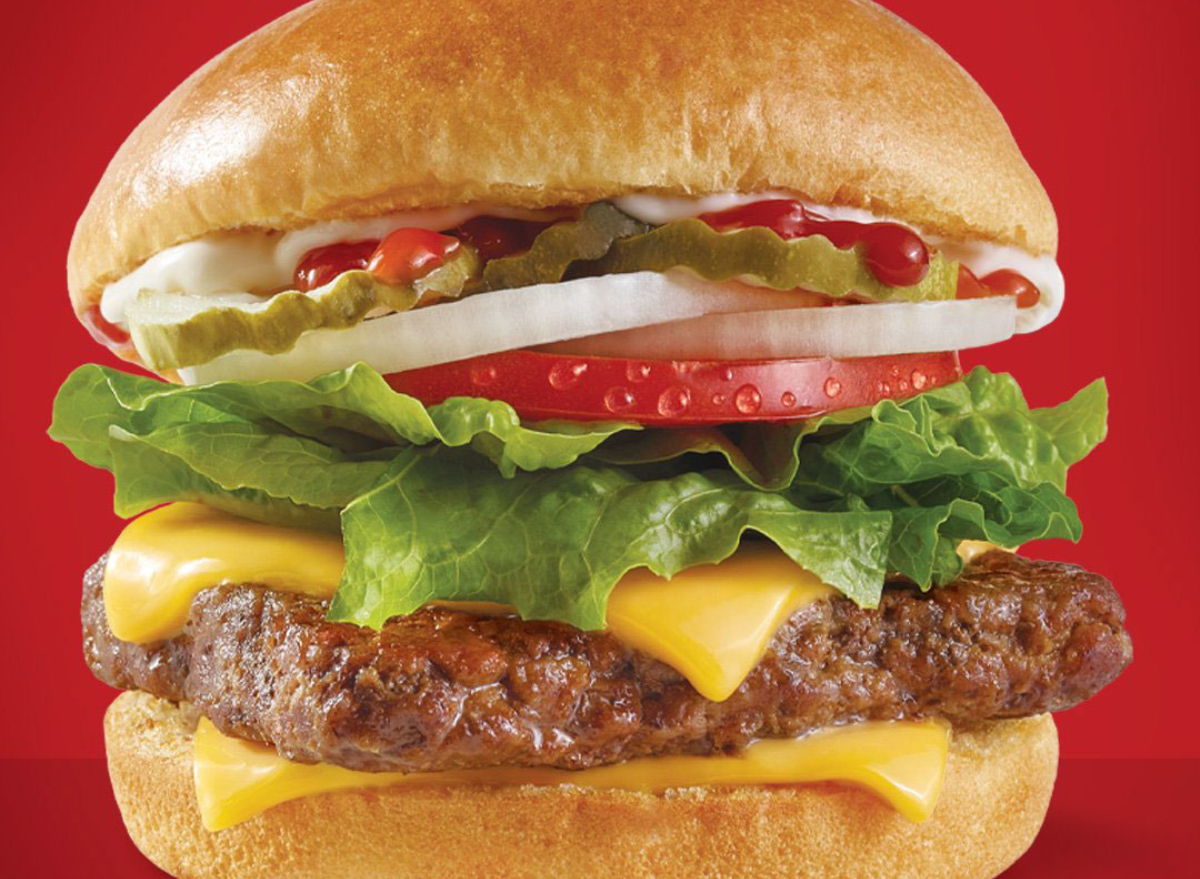America's Second-Largest Burger Chain Walks Back Major Expansion Plans
To the delight of Frosty and Baconator lovers across the globe, Wendy's announced an ambitious expansion plan last year, which would add 1,200 locations to its roster by 2025. More than half of these new locations—around 700 to be exact—were planned as delivery-only ghost kitchens to be operated and staffed through a collaboration with Reef Kitchens.
But, it appears the burger chain may have bitten off more than it could chew, and is now drastically pulling back on its ghost kitchen strategy. Wendy's announced it is cutting down the number of Reef locations it will open from 700 to just 100 to 150, with a significant decrease in units specifically within the U.S.
In the company's Q2 earnings call, CFO Gunther Plosch shared that sales from the initial collaboration with U.S. Reef kitchens have been underwhelming. The locations have generated average annual sales of less than $500,000 per store–paling in comparison to other markets which have realized between $500,000 to $1,000,000 in average unit volume.
Wendy's hasn't been immune to the pressures of inflation which dealt a major blow to the fast-food industry this year. The burger joint has joined others in raising prices to keep up with growing ingredient and labor costs and customers have also shifted to less discretionary spending, causing profit margins to narrow. Something eventually has to give, and for Wendy's, this has meant dialing back its aggressive growth plans.
Wendy's ghost kitchens will still hold a presence in the U.S. but on a much smaller scale and focused mostly in "densely populated high potential markets" according to CEO Todd Penegor. A higher percentage of the chain's restaurants in Reef's mobile vessels will alternatively open in Canada and the U.K. where sales have been more promising.
"We are excited to continue innovating together with a focus on doubling down internationally where we've seen very strong economics in our current partnership," a Reef spokesperson said.
In addition to the Wendy's setback, Reef Kitchens has dealt with numerous other growing pains. Health department violations and complaints of raw or undercooked foods have been reported in connection to the company's mobile food units. Reef also lost its partnership with the fried chicken restaurant Fuku at the end of 2021 and temporarily closed nearly one third of its kitchens back in January.
The company continues to scale however, and notes on its website that over 8,500 total locations now exist within the Reef network, including 300 kitchens in North America and Europe. As opposed to Wendy's kitchens, many of Reef's other facilities operate multiple brands at once—a model which the company has found to be more successful.
Reef's competitor Kitchen United has gained traction using a different operational approach. While Reef units are typically positioned in parking lots, Kitchen United locations are set up as food halls and can also be found inside grocery stores like Kroger and Ralphs—where natural foot traffic can lead to higher sales.
The ghost kitchen concept was certainly attractive at the height of the pandemic and regarded as the future of fast food. Juggernauts like Kitchen United and Reef continue to innovate and fine-tune their models, but unforeseen roadblocks–such as the Wendy's pull-back–have made the path forward more thorny than originally anticipated.









